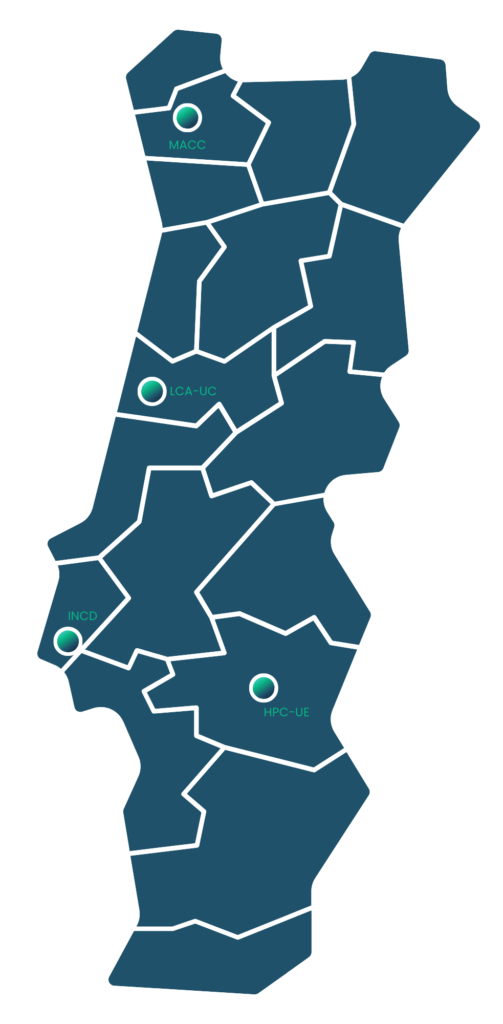
In Portugal, the first supercomputer open to the scientific community was installed by the FCCN in 1988.
Between 2006 and 2007, HPC systems were installed at the University of Coimbra, University of Porto, Instituto Superior Técnico, National Laboratory of Civil Engineering and University of Minho.
In 2010, in the context of the National Grid Initiative, the first HPC system with low latency network open to the whole community was installed in Lisbon. Since 2017, the Advanced Computing Laboratory (LCA) of the University of Coimbra and the National Infrastructure for Distributed Computing (INCD) have provided HPC resources within the scope of the FCT research infrastructure roadmap.
More recently, the Oblivion supercomputer was installed at the University of Évora in partnership with the ENGAGE SKA research consortium, and in Minho the BOB supercomputer, in a partnership between FCT and the University of Texas at Austin. These systems are expected to be a first step towards a very significant increase in national capacity, which will culminate next year with the installation of the future Deucalion supercomputer supported by the European EuroHPC initiative.
These developments are part of INCoDe.2030 and the national strategy for advanced computing.
The HPC systems currently operated by LCA, INCD, HPC-UE, and MACC support applications in life sciences, bioinformatics, climate, materials science, computational chemistry, physics, and civil engineering, among others.
HPC Operations Centers
MACC
Minho Advanced Computing Center
INCD
National Distributed Computing Infrastructure
LCA
Advanced Computing Laboratory
of University of Coimbra
HPC-UE
High Performance Computing
of University of Évora

Visualization Centers for HPC
VisLab
MACC
3CA.UBI
University of Beira Interior
CCVCA.UTAD
University of Trás-os-Montes e Alto Douro
CCVCA.UL
University of Lisbon
CCVCA.UP
University of Porto
CCVCA.UALG
University of Algarve
CCVCA.UA
University of Aveiro